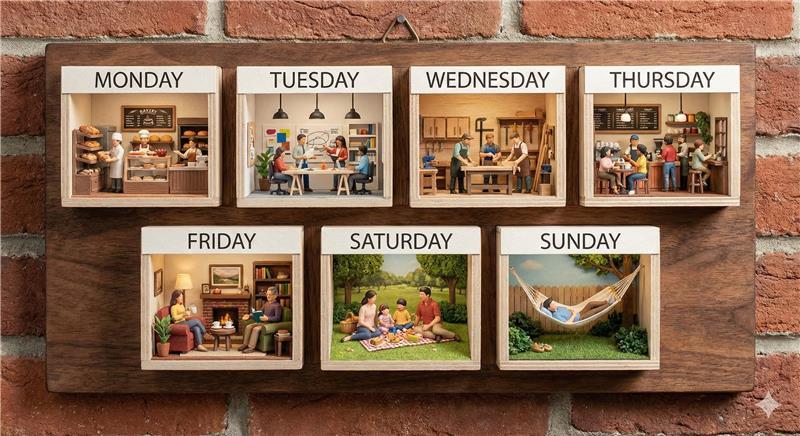How to Know If a Four-Day Workweek Is Right for Your Business
The four-day workweek has become one of the most talked-about workplace shifts of the last decade. Large corporations are experimenting with it....

Growth is probably one of your goals this year for your small business – and if it isn’t, it should be. That said, not all growth is created equal. If you grow too fast or if your business isn’t set up to handle it – you could end up costing yourself time, money, and even employees.
We see it surprisingly often – business owners acquiring a second location or going into growth mode before they’re ready because they don’t have their structure in place. They don’t have a business model set in stone – it’s just sell work and do work.
So with that in mind, we thought we’d give you a little primer on how to create the sort of foundation you’ll need for meaningful growth. Let’s get started.
This might feel like common sense, but we actually see this problem come up a lot. Don’t buy another business before your systems are set up in your own business. It might be tempting, if another business in your line of work comes up for sale, to buy it and then figure out your processes and procedures later – but that’s not going to work. Instead, you’ll be winging it with both businesses, which is going to occupy A LOT of your time.
That means letting things go by the wayside. That could mean getting behind on your tax filing, being too busy to service your customers, and ultimately sacrificing a lot of profit. That, PLUS you’ll be disrupting the new business’s existing clients and employees, who won’t see you as a benefit, they’ll see you as a net negative. Not where you want to be. Now you’re losing employees, you’re hurting morale, and you’re failing on your promises and your service standards. That’s not the path forward to good growth.
Another thing to think about: you’ll want to be clear about what kind of vision you have for your business BEYOND raw numbers. In our opinion, businesses who build relationships with their clients as opposed to break/fix operations have the best chance to succeed. If you’re not quite there, you may have to get yourself there. How?
On the other hand, if you have your systems in place, you have systems that you can apply to your new location, and a plan for how to grow – you’ll ultimately have more success. We even see folks routinely hire a process consultant, someone who can make sure that your model will be executed cleanly and that your vision for your business is realistic.
The biggest part of growth? Making sure your numbers line up and your projections are accurate. Need help with that? Check out our blog on how to read your financial statement. You’ll want to have a discussion with your CPA to make sure that all of the items on this checklist are in a good spot.
Now, it’s easy to list these things off, but harder to, you know, actually do them. That’s exactly why you need someone who has the experience and know-how to understand the foundational principles of getting your business set up for growth. That’s why we recommend a good CPA as one of the first hires you make when setting up your small business.
Are you set up for growth? Let’s talk and figure it out together.
For more on managing growth for your small business, check out more of our Managing Growth series:
Part 1: Managing Your Business Growth Organically
Part 2: How to Grow Your Small Business Through Mergers & Acquisitions
Part 3: S-Corp, Partnership, or C-Corp: Which Is Right for Your Small Business Growth

The four-day workweek has become one of the most talked-about workplace shifts of the last decade. Large corporations are experimenting with it....

We've all seen the headlines. Another major company announces that everyone needs to be back at their desk. No exceptions. And if you're running a...

If you work with a payroll provider for your small business, payroll typically runs on a set schedule with very little day-to-day involvement from...